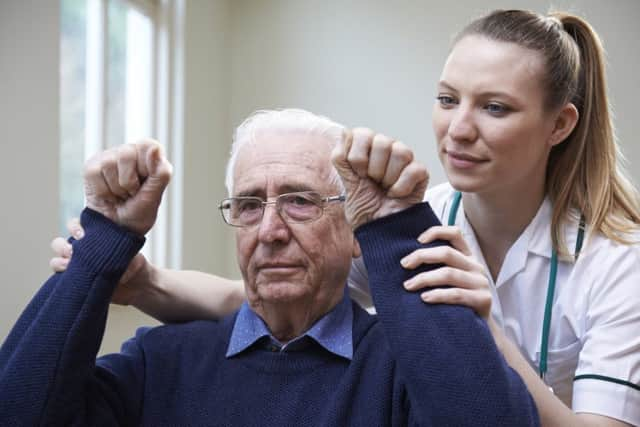Stroke care fails mandatory target for all Scots health boards


Figures released yesterday show Scotland’s NHS boards have all failed to meet last year’s target of giving 80 per cent of patients “appropriate care”.
The 2018 Scottish Stroke Care Audit revealed only 68 per cent of patients received care meeting the guidelines, which include hospital admission within one day, a brain scan within 24 hours, screening tests within four hours and aspirin being provided within a day.
Advertisement
Hide AdAdvertisement
Hide AdThe performance was fractionally higher than the 65 per cent rate recorded in 2017, but only one health board – NHS Ayrshire and Arran – was close to the 80 per cent target.
In NHS Highland, more than half of patients (48 per cent) did not receive appropriate care, while Dumfries & Galloway (63 per cent) and Lothian (64 per cent) were also among the worst performing areas.
Significant improvements were recorded at Lanarkshire and Tayside as 9,641 stroke patients were admitted to Scottish hospitals last year.
Experts expressed concern over inequality in the provision of care, with a key treatment remaining unavailable in Scotland.
Adam Stachura, head of policy with Age Scotland, said: “It’s a significant cause for concern that not a single NHS board met the targets last year. We urgently need the Scottish Government and NHS boards to come up with a plan to address these figures and ensure every stroke patient gets the care they need.
“Stroke is the third biggest killer in Scotland and a leading cause of disability, and our risk increases as we get older.” Professor Derek Bell, president of the Royal College of Physicians of Edinburgh, said the report “shows continuing improvement in the delivery of many aspects of stroke care in Scotland”.
But he said: “However, we believe that a full range of effective treatments should be available to Scottish patients.
“It is therefore disappointing that a key treatment – mechanical thrombectomy – is still not available in Scotland.
Advertisement
Hide AdAdvertisement
Hide Ad“Mechanical thrombectomy is an emergency treatment which can prevent significant life-changing disability in selected patients with severe strokes.”
Chief executive Jane-Claire Judson said: “Stroke patients and their families are frustrated and fed up of the delays on thrombectomy – and we’ve fallen badly behind the rest of the UK and Europe.”